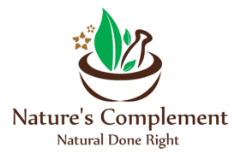
Concerns about toxic ingredients are not limited to personal care or body care type products. Toxicity problems can involve a wide variety of products that people use on a regular basis.The following article from Everyday Health by Aly Cohen, MD, FACR, provides a good reminder about some of the things that you should try to avoid.
While we cannot vouch for the validity of all the content on the Everyday Health web site, in reading this article we thought that this was good information worth pointing out to our readers.
Here is a summary of the key items to avoid mentioned in the article, [with additional information provided by us in brackets].
1. Plastic food containers
Ever wonder why clear plastic containers turn cloudy after running through the dishwasher a few times? Plastic breaks down over time, and this breakdown can release dangerous chemicals into your food. Many plastic containers are made from chemicals including phthalates, which act as endocrine-disrupting chemicals (EDCs). Switch to glass containers. [Many plastic food containers can leach BPA (Bisphenol A) into your food that cause cancer and hormonal and reproductive disruption. And just because product packaging is listed as “BPA free” do not necessarily guarantee that they are safe. Many manufacturers have switched to using BPS (Bisphenol S), BPF (Bisphenol F), or other similar chemical compounds.]
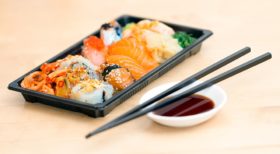
2. Prepared foods in plastic containers
You don’t necessarily have to toss these, but don’t heat them up in the plastic. Heating plastic can release chemicals that seep into your food. It’s well worth your time to take a few extra seconds to transfer prepared foods into a glass container before heating them in the microwave. [Also consider other types of plastic exposure, such as leaving plastic water bottles in the car on a hot summer day. This creates a similar problem.]

3. Nonstick pans
Many nonstick pans contain trace amounts of a chemical called perfluorooctanoic acid (PFOA), which has been shown to cause cancer in laboratory animals. The pans’ non-stick lining can scratch or chip off into your food. Instead, use cast iron or stainless steel cookware, and natural, non-stick sprays such as olive oil. [PFOAs are not the only culprit, there are others such as PTFE (Polytetrafluoroethylene) which have been linked to cancer, birth defects, liver toxicity, and disruption of thyroid and reproductive hormone functions. Also consider other sources of exposure to PFOA such as the lining of microwave popcorn bags.]
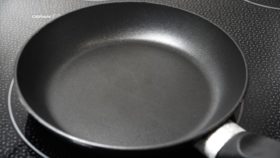
4. Air fresheners
I never allow artificial air fresheners in my home. Anything you breathe in eventually ends up in your bloodstream. Plug-in scents or synthetically scented candles many contain chemicals called phthalates, which have been linked to reproductive problems. Instead, choose candles made with essential oils and fresh flowers to scent your home. Also, try using baking soda and white vinegar as odor absorbers. [Phthalates are often listed (or disguised) on ingredient labels as “fragrance”, so anytime you see “fragrance”, you can almost guarantee it means phalates.]
5. Perfumes
The one-word ingredient “perfume” can translate to a product containing upwards of 300 chemical ingredients. (Perfume companies won’t release lists of exact ingredients for fear of divulging secrets to their competitors.) Avoid perfumes and colognes or switch to products that are scented with natural oils. [Perfumes almost always contain phthalates which as mentioned above, disrupt hormones and reproductive function. There are also other sources of perfumes containing phthalates, such as in dryer sheets, shampoos, room deodorizing sprays, and many baby products!]
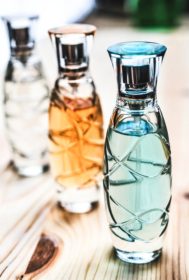
6. Fabric and upholstery protection sprays
Stain blockers essentially create an invisible plastic barrier over your furniture. This plastic will eventually wear off and be released into your home environment. Instead, simply clean stains as necessary rather than trying to prevent them.
7. Cleaning products
Check the labels of cleaning products for chemical ingredients such as phthalates and chemical surfactants. Natural products like baking soda, Borax, soap powder, vinegar, lemon and hot water work just as well without coating your home in toxins.

8. Cosmetics
From shampoo to lipstick, the average American woman applies up to 12 personal care items, and the average man up to six, to their skin each day. That adds up to roughly 126 unique ingredients, according to the Environmental Working Group, a public health advocacy organization. Opt for cosmetics with mineral-based pigments and natural oils. Choose soaps and shampoos free of synthetic fragrances and chemicals such as triclosan, which has been found in animal studies to alter hormone regulation. [We have written about many of the common ingredients in cosmetics and personal care products that are toxic. You can find part I here and part II here.]
9. Antiperspirants
Many antiperspirants use aluminum-based compounds and other chemicals, which are absorbed into the sweat glands. While there are ongoing studies on possible health impacts of antiperspirants, I advise avoiding any chemicals that are absorbed into the body for non-medical purposes. You can find aluminum-free antiperspirants, and there are many chemical-free brands of natural deodorant sticks and sprays that don’t contain parabens and all ingredients with ‘PEG’ in their name (such as PEG-8 and PEG-40 hydrogenated castor oil). [Our Nothing Fancy Deodorant contains no health harming ingredients.]
10. Sunscreens with oxybenzone
Research on animals suggests that chemicals in some sunscreens, including oxybenzone, may cause health problems when they penetrate the skin. The safest sunscreens are made from minerals such as zinc oxide and titanium dioxide, but they can be very expensive. In general, avoid aerosol spray sunscreens, which you can accidentally inhale, as well as sunscreens containing chemical ingredients such as oxybenzone, octinoxate, retinyl palmitate (a form of vitamin A), and fragrances. [For additional information about ingredients found in sunscreens, please read our article Do You Really Need a SunScreen? And our completely safe Shield Sunscreen can be found here.]
Beware of ‘Natural’ Ingredients
When you’re looking for safer products, keep in mind that term “natural” means almost nothing in the food and cosmetics industry, as it’s not regulated by the FDA. Instead, look for “organic” labeling, because organic ingredients are federally monitored, and really mean something in the food and cosmetics world. [Nature’s Complement uses organic ingredients whenever possible but is not certified organic (that can be cost prohibitive for a small business). Also, the organic version of certain ingredients are so expensive it would make our products cost prohibitive to consumers. Nature’s Complement lists all ingredients on their label and identifies when ingredients are organic and non-GMO]
A good start in finding safer products for yourself and your home is to avoid items containing parabens or -sulfates (such as sodium lauryl sulfate or sodium laureate sulfate) or items labeled “fragrance” or “parfum.” [Nature’s Complement does not use ANY synthetic chemical fragrances or perfumes in any of our products. In addition, our Cleanse Liquid Soap and our forthcoming laundry detergent and multi-purpose cleaner do not contain sodium lauryl sulfate or sodium laureate sulfate, which are commonly found in such products.]
Of course, it may not be practical for you to toss all of these items at once. Instead, try swapping out one product at a time with a safer version. Even small steps to minimize your chemical exposures can create a healthier and safer home.
Dr. Aly Cohen is a board certified rheumatologist and integrative medicine specialist, as well as an environmental health expert. She shares tips and info on environmental issues on her website TheSmartHuman.com.
This article does not provide an all inclusive list of course. We just thought it was nice to see others writing about health concerns of common products we’re exposed to. And as always, we like to provide alternatives, since you’re going to be throwing away several items from your home. There is much less benefit in pointing out a problem without offering a solution. Here are some ways to replace unsafe products with safer alternatives.
To avoid exposing yourself to the toxic ingredients found in plastic containers, switch to glass storage, which many you can freeze, microwave, and the right kind you can even bake in. Buying a whole new set can get expensive, but as the article above suggests, you can start small. Your local grocery store might sell glass storage containers and cookware, you can buy one item every time you go to the grocery store, and replace one plastic container each week, before you know it, you’ll have a full set of safe food storage containers.
Pots and pans can be expensive, but if you buy a quality brand, I can tell you that it will be worth the price. I have personally owned my set of stainless steel cookware for 14 years! I highly doubt anyone’s cancer causing thyroid destroying Teflon pans will last for 14 years. Look for a brand you can trust, and make sure to read the package description. Pots and pans will list all the metals that are used, at least they should. If it’s not listed, I wouldn’t trust it.
A good alternative to air fresheners and perfumes is to use essential oils which are generally quite safe, but check your manufacturer, since not everyone tells the truth. There’s a new group that took this matter seriously, and has started testing essential oils for purity. They are still in development, and this type of work costs money, so be patient with them. But you can find some brands and essential oils they have already tested. Check it out: Essential Oil Analysis Foundation
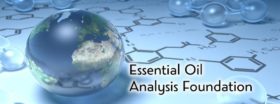
You don’t need any perfumes, trust me. People tend to way over spray themselves with perfumes and colognes, while they pile up scented lotions, aftershave, and so on. You don’t need any of that. In fact, you just might be causing someone else to have a migraine. Here is a study to show that migraine sufferers most common trigger was perfume. You could even be sued for your over use of perfume, and the ADA now has guidelines that more and more employers are adopting. Just go without. I promise, no one will be offended, or if you must use something, use natural scents such as pure essential oils, in sparing amounts.

Skip the chemicals to prevent stains, and throw away those harsh chemicals that clearly state to wear gloves and goggles. Switch to natural cleaners, or even upgrade to a steam cleaner where you can kill germs and clean with the power of hot water.
Find a nice bamboo set of utensils and cutting board. The drawback is that you can’t really put these in the dishwasher, but the benefits of a healthy lifestyle are priceless and worth the few dishes you have to hand-wash.
Of course we offer a variety of safe, healthy products that can solve many of these problems such as our Nothing Fancy Deodorant, our Shield Sunscreen, and a variety of other personal care products. We have spent a great many hours not only developing products that can be effective and safe without the use of harsh chemicals or questionable stabilizers, along with extensive research into where our ingredients come from.
Don’t forget Fido, read the ingredients of your pet products as well. You can read more about that here.
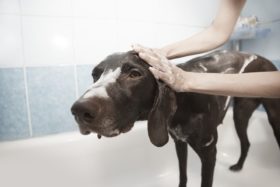
We are constantly developing new products, so sign up for our Tobergram newsletter to get the latest research articles, and information on our new product releases.
Finally, if you would like to learn (A LOT!) more about the science of the hazards of many chemicals we are exposed to on a regular basis, we recommend the following two books:
Our Daily Poison: From Pesticides to Packaging, How Chemicals Have Contaminated the Food Chain and Are Making Us Sick, by Marie-Monique Robin.
And Tober just posted her book review on Slow Death by Rubber Duck: The Secret Danger of Everyday Things by Rick Smith and Bruce Lourie. She’ll tell you, that book made her run through our home and make sure she hadn’t missed anything previously when eliminating toxic chemicals from our house. She was about to throw away our bed [which contain hormone disrupting fire retardant chemicals]! More on that in a future article.
For Health,
Rob
Nature's Complement is a participant in the Amazon Services LLC Associates Program, an affiliate advertising program. If you purchase products on Amazon through any of our affiliate links, we get a small percentage of the transaction, at no extra cost to you. We spend a lot of time writing the articles on this site, and all this information is provided free of charge. When you use our affiliate links, you support the writing you enjoy without necessarily buying our products. (However we would appreciate if you would do that too!) Thank you for helping to support our work, however you choose to do so.
These statements have not been evaluated by the Food and Drug Administration. This information and/or products are not intended to diagnose, treat, cure or prevent any disease.
